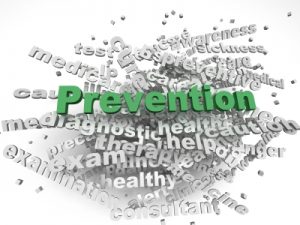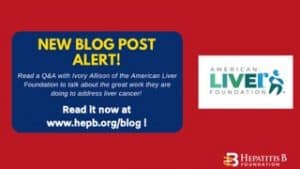
In honor of Liver Cancer Awareness Month, the Hepatitis B Foundation sat down with Ivory Allison, National Senior Director of Community Impact at the American Liver Foundation (ALF), to discuss what this month means to ALF, how they celebrate, and why addressing liver cancer is so important. Read on to learn more!
Could you please share a little bit about the history, vision, and mission of the American Liver Foundation (ALF) and what are some of the programs and activities that you lead?
Absolutely. First, thank you for inviting the American Liver Foundation to be a part of this. We are very excited to have this opportunity. Partnering with the Hepatitis B Foundation is something that we’ve done for a very long time, and we enjoy having the opportunity to continue this partnership, especially during October.
The American Liver Foundation was created in 1976, so we are 48 years old. we were created by the American Association for the Study of Liver Disease (AASLD). That organization is comprised of scientists and healthcare professionals, who at the time were concerned with the rising incidence of liver disease and the lack of awareness amongst both the public and the medical community at that time. The mission of ALF was to complement the programs and services provided by AASLD. So, they focused on medical professionals, and we focused on patients and the general public. We are a 501(c)3 nonprofit and our mission is to promote education, advocacy, support services, and research for the prevention, treatment, and cure of liver disease. When you look at that, that’s huge to cover because we don’t focus on any specific liver disease – our focus is on liver disease in general.
We try and make a measurable difference in the fight against liver disease by providing financial support for medical research. We have a research department and education for medical professionals. For example, we had a few education programs this past summer. We launched a program called Project ECHO for medical professionals and providers to learn more about MASLD, or fatty liver disease, and we’re going to continue that the rest of this year, every month, and continue it hopefully in 2025. And of course, programs for advocacy and information for patients, including educating patients and their families by creating public awareness campaigns about liver wellness and disease prevention, are our focus.
I currently oversee a few different initiatives. One of them is our liver cancer initiatives which include a two-day liver cancer conference that we’ve held since 2020, called the Educated Patient for patients and caregivers. This year we’re trying something new where we are focusing on a liver cancer series that we actually kicked off in September, specifically for pediatric liver cancer, because September was Pediatric Cancer Awareness Month. In October, we actually have two programs that will be happening for liver cancer and then we have one that will be ending in November. The other couple programs that I’ve overseen include our Rare Liver Disease Summit, our autoimmune forum, and our pediatric initiatives.
I also oversee some of our collaborations with the Center for Disease Control Viral Hepatitis Division. I have worked with them for the last three or four years on programs, including hepatitis C barriers to treatment in community-focused primary care.
Is there anything in particular or maybe a couple of things that you enjoy most about your work?
I really enjoy working with the partners, and our partner organizations. Hepatitis B, hepatitis C, and other liver diseases affect so many people, especially in diverse communities and that’s also something that I’m glad that we have had the opportunity to focus on that under our CEO Lorraine Stiehl, who’s made that a priority. Liver disease, of course, affects so many different people and to be intentional about making sure that we focus on these particular groups where liver cancer is high is crucial. Being able to do programming and targeting these communities to educate them is something that I think has been exciting.
What are some of the primary causes of liver cancer?
Hepatitis B and hepatitis C are common risk factors for liver cancer worldwide and people who are infected with both viruses have an even higher risk. There are certain risks to getting liver inflammation such as heavy alcohol use and tobacco use of course. MASLD is also a high-risk factor for liver cancer. What ALF has been trying to do is have programs specifically for risk factors for liver cancer. But people who have hepatitis B, hepatitis C, or MASLD often don’t realize that they are at high risk for liver cancer. So, our goal is to go to those communities to educate them about the potential risk of liver cancer.
Why is early detection of liver cancer so important and what are some strategies that can be used to increase prevention and early detection of liver cancer?
Improving early access to screening, education, and treatment is vital. This includes educating the general public and people who have liver disease about liver cancer, so that we can prevent it. It is difficult when people have liver cancer and have to go through treatment or get a liver transplant.
At ALF, we have a public health campaign called Think Liver Think Life. It’s a national public health campaign that which aims to ensure every American understands their risk for liver disease, factoring in things like drinking heavily, smoking, and being in the “baby boomer” generation. We tried to allow for the appropriate screening and care coordination through this campaign. We have liver health specialists that go around the country to different events educating and raising awareness and providing screenings in some locations about these risk factors.
What are the barriers when it comes to raising awareness or implementing screening protocols?
Resources and language barriers. For us, we have someone on staff who oversees our connection to care. For example, when we’re out in the community educating people about liver disease, doing screenings, or are at the clinic, we have someone on our team who is bilingual in Spanish, and she can connect with these patients. We have also made multiple languages available on our website, so you can translate the website from English to Spanish, Chinese, or Italian. This has been very helpful for many people. Also, when you talk about certain communities who are so focused on their families and work, they put their health on the back burner. They’re focusing on feeding their children, taking care of their families, and they aren’t putting their health as the number one priority. And we see that all over, right?
What we’re trying to do now is to make it so that we are educating the whole family, instead of focusing on one person. We’re trying to say to the mom, “This is important.” If your child has MASLD or someone in your family may be at high risk, it’s important for not just them, but for you as well to be screened and tested because many people, especially women, put their children’s health before their own. We like to say, if we can educate the mom or the wife, we educate the whole family.
So, make sure you’re getting screened because when your family sees what you’re doing, they’ll normally follow through. They will also make sure that they’re getting screened or that they’re eating healthy and cutting back on cigarette and alcohol use.
Is there any advice you would give to someone who is currently living with liver cancer, someone who’s indirectly impacted, or someone at high risk of liver cancer?
For someone living with liver cancer it is important to not isolate yourself. I can imagine it is very overwhelming and very scary to be diagnosed with liver cancer and living with liver cancer. But make sure that you are communicating with your family, friends, especially your doctor, and connecting with others who are going through what you’re going through. At ALF, we have a private liver cancer Facebook group for patients as well as caregivers. You can also join that group to find that community so you can connect with people and talk with people. We also have monthly support groups at the American Liver Foundation via Zoom, moderated by a licensed social worker. You can connect with others and just talk. You see a lot of people who are going through liver cancer who get depressed, and it’s really difficult for them to continue with treatment. So, I would say, don’t isolate yourselves. Find your community. If it’s two people, three people, whoever it is, and make sure you continually connect with your medical team. Get to know your team and understand that you’re the boss of your healthcare team. Don’t be afraid to communicate with them and let them know what’s happening or what’s going on. If you’re not comfortable with your team, first talk to them. If you’re still not feeling that team, move on, because again, you’re the number one.
If you’re at high risk for liver cancer, I would say, again, talk to your medical providers and find out what the next steps are and what you can do to prevent liver cancer. Talk to them, educate yourself, but don’t overwhelm yourself. Educate yourself because what the medical providers tell you may be overwhelming. Also, get vaccinated against hepatitis B, get tested for hepatitis C, and get medical care if you have either virus.
Why is it important to have a month specifically dedicated to liver cancer awareness, and what are some activities that ALF is involved in to celebrate liver cancer awareness month?
I think it’s important for us to have an opportunity to highlight this particular disease, raise awareness, and educate the public. It puts a spotlight on this disease and for an entire month, we can have campaigns and weekly programs and put a face to liver cancer so people are knowledgeable, and the importance doesn’t get lost throughout the year.
For Liver Cancer Awareness Month, we have a few things happening. We have a program on October 23rd on how to prevent liver cancer if you are at high risk. It’s going to be in Spanish. We are also releasing a video on how to be involved with your medical team and how to interact with your team.
We are also going to be releasing a 30-Day Menu of Recipes so people can hopefully check out some healthy recipes. We tell people all the time that they should eat healthily, and sometimes we realize many people don’t know what that means. To address this, we are going to be launching in October a 30-day menu. Then, of course, our Think Liver Think Life campaign will pick up a little extra in October as well.
Is there anything else you would like to share?
This year, we also launched a patient registry. It’s the first-ever patient registry for all types of liver disease, and it will help provide researchers with a better understanding of liver diseases, the impact of current treatments, and how liver disease affects patients. People can find more information at www.liverpatientregistry.org, and they can find and read about why they should participate, what they would have to do, how it works, and who can participate. And of course, they can always go to our website, www.liverfoundation.org, for more information on any of our programs, events, and policies.
Click the link for more ALF events and programs: https://liverfoundation.org/resource-center/blog/october-is-national-liver-awareness-month-do-you-know-your-liver-health/
Thank you so much for taking the time to speak to the Hepatitis B Foundation today! We really appreciate your time and insights, and all of the great work ALF is doing!


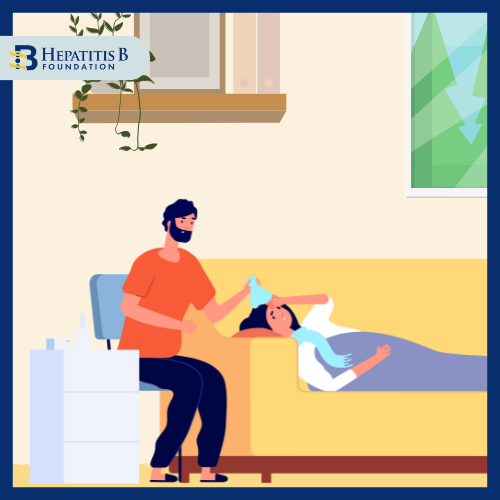
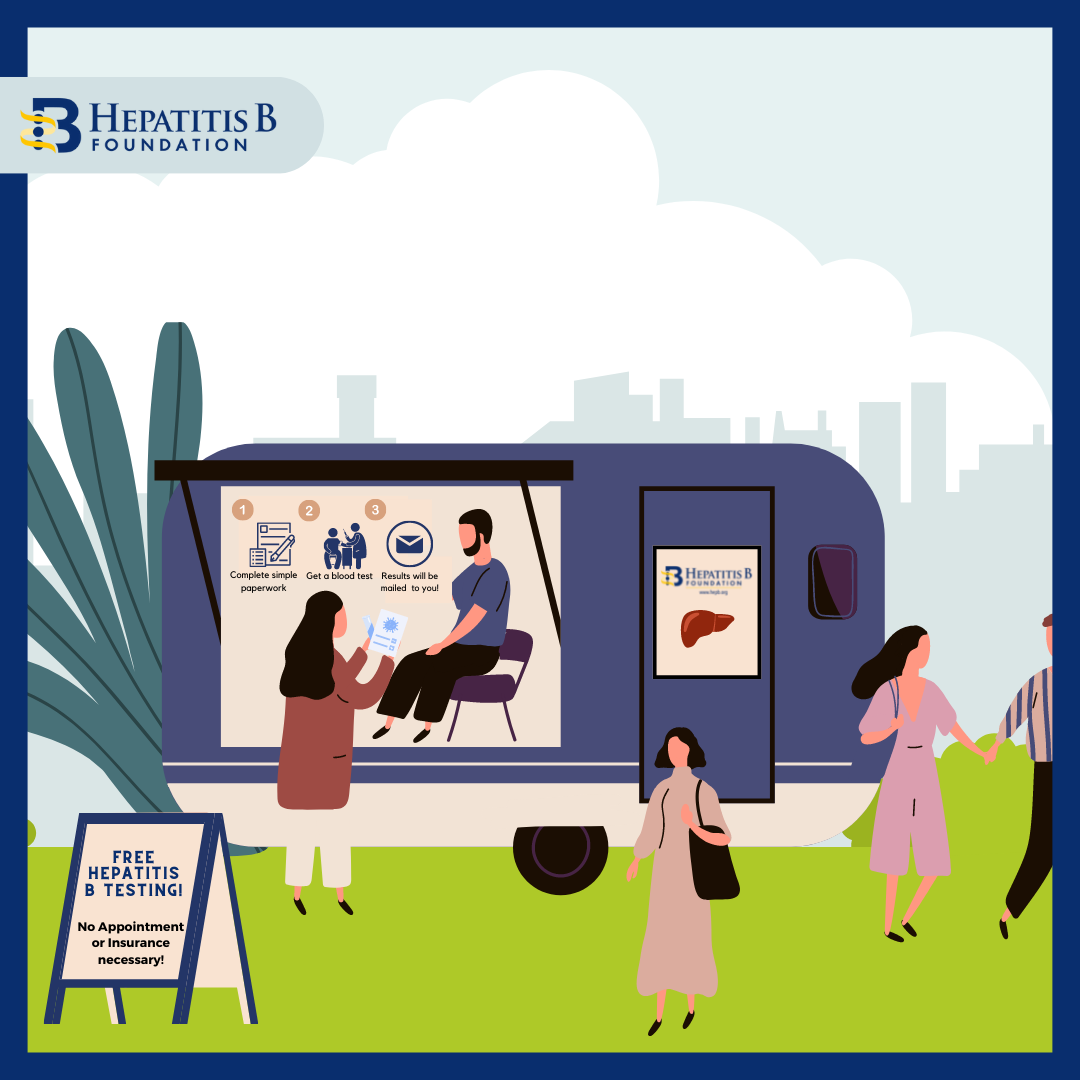
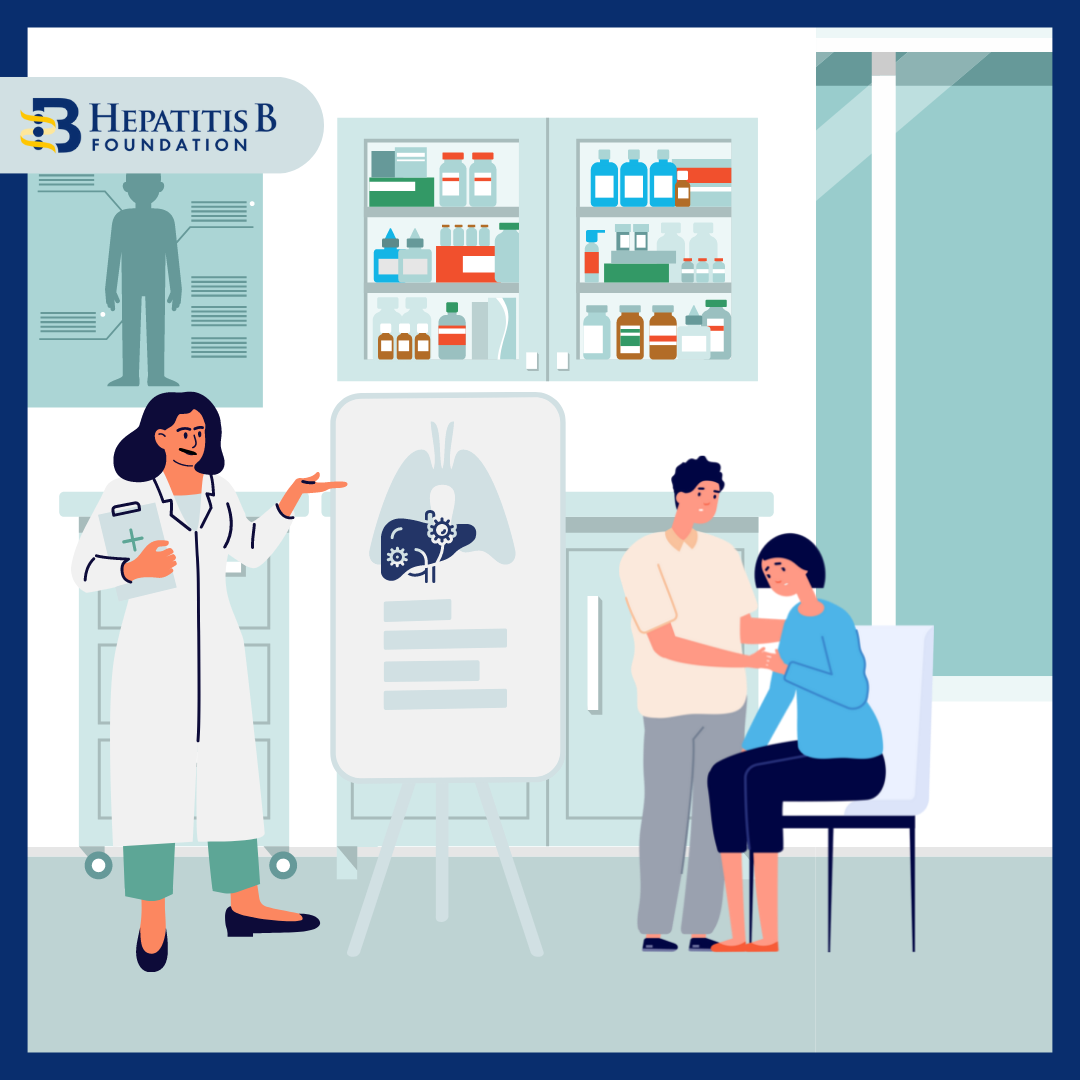
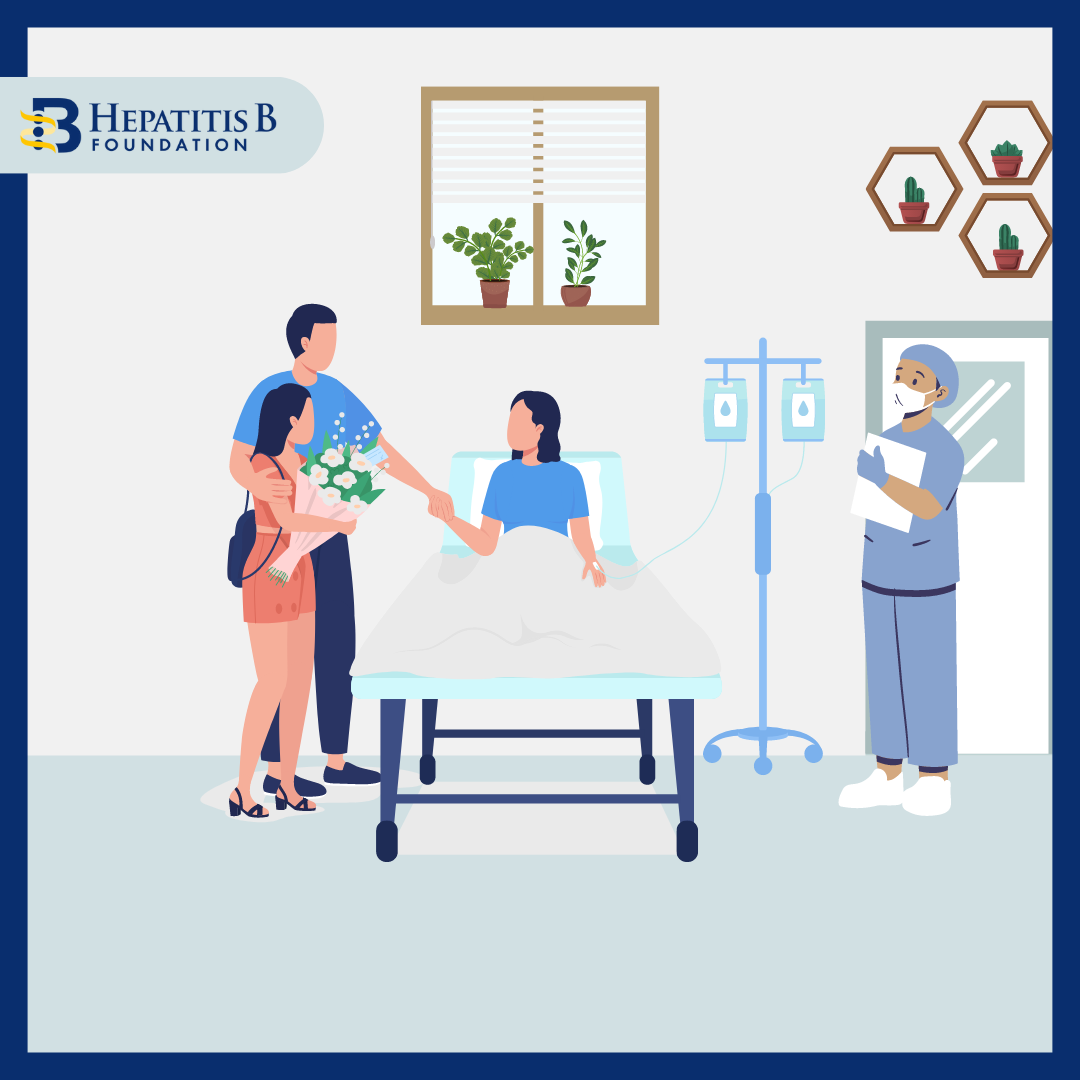
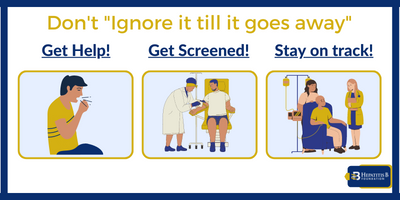

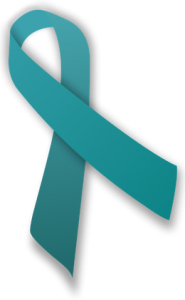
 How many years have you had hepatitis B? The longer you’re infected, the higher your risk of liver cancer.
How many years have you had hepatitis B? The longer you’re infected, the higher your risk of liver cancer.